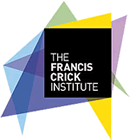About the Project
This 4-year PhD studentship is offered in Prof Julian Downward’s Group based at the Francis Crick Institute (the Crick).
The KRAS oncogene is the most frequently mutated oncogenic driver in human cancer, being activated in some 15% of tumours, including many poor prognosis cancers such as those of the lung and the pancreas. Despite huge research efforts, at present it is not possible to target the KRAS protein directly, although drugs have been developed that target downstream signaling pathways controlled by it, such as the RAF/MEK pathway and the PI 3-kinase/AKT pathway. MEK inhibitory drugs have shown some modest benefit in KRAS mutant lung cancer, but are only able to delay progression of the disease by a couple of months before resistance develops.
In order to move beyond treatments that only delay advanced cancers for a few months or, at best, years, we need to understand how to eradicate tumour cells completely, not leaving minor populations that go on to develop drug resistance and cause disease relapse. A very interesting area of investigation in this regard is that of immunotherapy. Tumours have to find ways to avoid recognition as foreign by the immune system, and recent clinical trials have achieved remarkable response rates using immune checkpoint inhibitors as immunotherapies in certain advanced cancers. This has illustrated how efficiently immune surveillance is suppressed locally by tumours and how powerful the intrinsic anti-tumour response can be if this suppression can be overcome. However, response rates to immunotherapies are highly variable and it is entirely unclear how these therapies can be combined to best effect with existing treatments. Systematic investigation of how immunotherapy can be combined optimally with targeted or chemotherapeutic agents will require good pre-clinical model systems which, unfortunately, are currently lacking.
Much work on the development of therapeutic agents to target oncogene driven cancers in recent years has relied on the use of genetically engineered mouse models (GEMMs) of cancer. However, we have found that these models have limited value in the study of the interaction of the tumour with the immune system, largely because they lack immunogenicity as they have very low mutation rates and low levels of aneuploidy, in sharp contrast to real human tumours. To allow study of the mechanism by which tumours overcome the immune system locally, we have developed improved mouse models of oncogene driven cancers that contain rates of mutation and aneuploidy elevated to the levels seen in human cancers. Using these immunogenic GEMMs (iGEMMs) on mouse backgrounds with either a normal or deficient immune system, we find that the immune suppressive effect of the tumour is evident from the earliest stages of tumour development.
In this project, we plan to use our mouse models of KRAS mutant lung cancer, along with well established cell based models, to investigate the interplay between the immune system and the tumour. In particular, we will focus on how RAS oncogene driven signaling can supress immune attack on the tumour at the earliest stages in its development and how it can co-opt components of the tumour microenvironment to promote tumour cell growth. This will involve analysis of gene expression profiles in single tumour cells and cells isolated from the tumour microenvironment in the early stages of tumour formation. We hope that this information will allow the identification of therapeutic approaches to reverse the shielding of the tumours from the immune system and we will explore how these might be combined with other existing therapies to enable effective treatment of this disease.
Talented and motivated students passionate about doing research are invited to apply for this PhD position. The successful applicant will join the Crick PhD Programme in September 2017 and will register for their PhD at one of the Crick partner universities (Imperial College London, King’s College London or UCL).
Applicants should hold or expect to gain a first/upper second-class honours degree or equivalent in a relevant subject and have appropriate research experience as part of, or outside of, a university degree course and/or a Masters degree in a relevant subject.
APPLICATIONS MUST BE MADE ONLINE VIA OUR WEBSITE BY 12NOON GMT NOVEMBER 14TH 2016. APPLICATIONS WILL NOT BE ACCEPTED IN ANY OTHER FORMAT.
https://www.crick.ac.uk/about-us/jobs-and-study/phd-programme/
References
1. Downward, J. (2003)
Targeting RAS signalling pathways in cancer therapy.
Nature Reviews Cancer 3: 11-22.
2. Kumar, M. S., D. C. Hancock, M. Molina-Arcas, M. Steckel, P. East, M. Diefenbacher, E. Armenteros-Monterroso, F. Lassailly, N. Matthews, E. Nye, G. Stamp, A. Behrens and J. Downward (2012)
The GATA2 transcriptional network is requisite for RAS oncogene-driven non-small cell lung cancer.
Cell 149: 642-655.
3. Fritsch, R., I. de Krijger, K. Fritsch, R. George, B. Reason, M. S. Kumar, M. Diefenbacher, G. Stamp and J. Downward (2013)
RAS and RHO families of GTPases directly regulate distinct phosphoinositide 3-kinase isoforms.
Cell 153: 1050-1063.
4. Castellano, E., C. Sheridan, M. Z. Thin, E. Nye, B. Spencer-Dene, M. E. Diefenbacher, C. Moore, M. S. Kumar, M. M. Murillo, E. Grönroos, F. Lassailly, G. Stamp and J. Downward (2013)
Requirement for interaction of PI3-kinase p110α with RAS in lung tumor maintenance.
Cancer Cell 24: 617-630.
5. Topalian, S. L., C. G. Drake and D. M. Pardoll (2015)
Immune checkpoint blockade: a common denominator approach to cancer therapy.
Cancer Cell 27: 450-461.

 Continue with Facebook
Continue with Facebook

